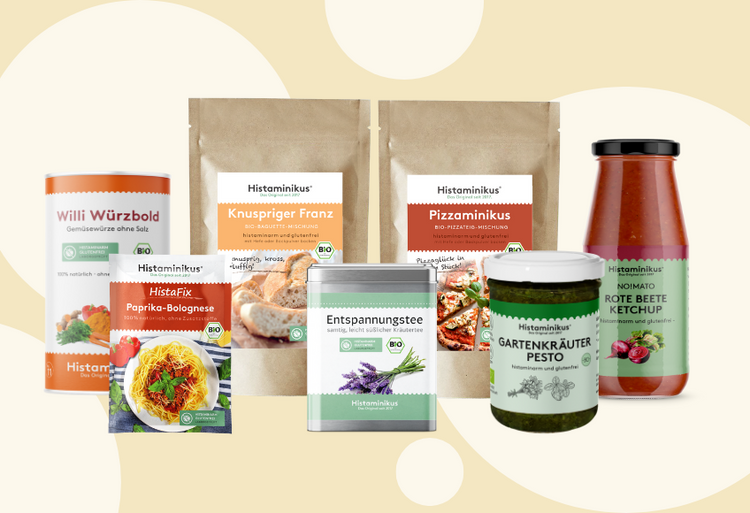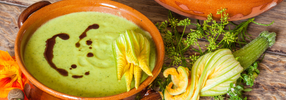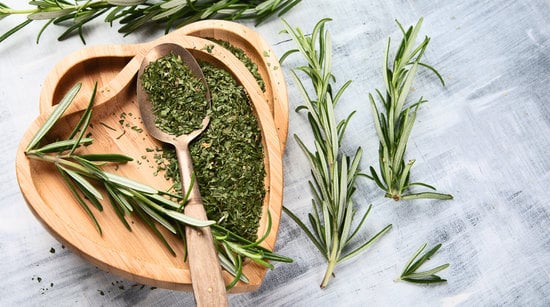
rosemary
Have you ever wondered why rosemary appears so often in the kitchen and also in naturopathy? No wonder - the plant has a really long story! The intensely fragrant rosemary in the Mediterranean was already valued in ancient times. At that time he was even considered a holy plant of the goddess of love Aphrodite - symbol of love and beauty. His name comes from Latin: "Ros Marinus", ie "dew of the sea". Sounds poetic, isn't it? In the Middle Ages, Benedictine monks finally brought the rosemary to Central Europe, where he was quickly included in the monasteries of the monasteries. Today, rosemary is not only a popular spice in the kitchen, but is also appreciated because of its health effect - whether as oil, tea or fresh herb. But how healthy is rosemary really? And how can you best grow, dry, store and use it yourself? You can find out here!
What makes rosemary so special?
Rosemary is not only a great kitchen herb - it can also do a lot for our body. There are many plant substances in rosemary that act as natural helpers in the body. Some of them protect our cells from harmful influences - a kind of natural cell protection if you will. A normal amount is enough for this to be used when cooking. However, rosemary has even more on the box: its intense aroma and the bitter substances it contains can ensure that the stomach gets going again. He stimulates the production of digestive juices - this can help with a bloated stomach or feeling of fullness.
In addition, the essential oils in rosemary get the blood circulation to trot. This can be noticeable, especially in the form of rosemary oil - for example in the case of muscle tension. But important: only use diluted, otherwise the skin can react irritably. There are also some studies that deal with the effect of rosemary. However, many of them were made on animals. For example, it came out that rosemary could alleviate inflammation or reduce stomach complaints. In humans, it was mainly examined how rosemary acts on the psyche and the brain. The initial clues show that the ingredients could help to fall asleep, raise the mood and even improve memory. You don't know exactly why this is so - maybe the sugar metabolism plays a role in the brain. However, most studies are still small and not clear. So rosemary is not a miracle cure - but a rather versatile companion in everyday life.
That is in it
The typical smell comes mainly from the essential oils. These include fabrics such as camphor, lime, cineol or thymol. These fragrances not only make rosemary aromatic, but also have health effects. But rosemary can do even more: it also contains resins, tannins, flavonoids (which are vegetable dyes with antioxidant effect), bitter substances, plant acids and so -called saponins - these are substances that can stimulate metabolism, for example. And even if you usually only use rosemary in small quantities, it is worth taking a look at your nutrients: in 100 grams, for example, there is a lot of potassium, calcium and magnesium - i.e. minerals that are important for muscles, bones and nerves. There are also iron, vitamin C for the immune system and vitamin A, which is good for skin and eyes, among other things.
Rosemary in histamine intolerance
The good news: rosemary is generally considered to be well tolerated in the case of histamine intolerance! In a scientific study, it was also checked how well rosemary oil can alleviate inflammation. It was also tested how the oil reacts to swelling triggered by histamine. A well -known drug, Indomethacin, was used for comparison. Rosemary oil was examined in two doses. It showed that in the early phase of the reaction - shortly after contact with histamine - rosemary oil was significantly reduced, sometimes even better than the medication. In the later phase, the effect of rosemary oil and Indomethacin was similarly strong. The laboratory also showed that rosemary oil inhibits a certain enzyme, which also plays a major role in inflammation: the so -called cyclooxygenase (COX). This effect was weaker than the medication, but still measurable.
Use rosemary effectively
-
Rosemary
Have you ever considered making a tea out of rosemary? It is very easy - especially if you have the plant yourself in the garden or on the balcony. It is best to collect the needles just before flowering. It is important: dry and gently dry so that the fragrant essential oils are preserved. For the preparation, a frequent teaspoon of dried leaves ranges on a cup of hot water - then let it steep for 15 minutes. The tea can boost digestion, help with colds, or simply get you going again at a concentration depth. Because rosemary tea can stimulate your circulation.
-
Rosemary oil
Rosemary oil looks particularly intense - and that is exactly why you should only use it and use it externally. It is obtained from the leaves using water vapor distillation and is available in pharmacies. The effect? It gets the blood circulation going, can alleviate muscle pain and be beneficial in rheumatic complaints. But be careful: do not use too late in the evening - the oil has an activating effect and could disturb sleep.
-
Rosemary for hair
Rosemary has now also arrived in hair care. Whether shampoo, scalp oil or hair water - you can read rosemary on the list of ingredients more and more. The reason: one suspects that it supports hair growth and that hair loss can slow down. A small study with people who suffered from hereditary hair loss shows initial clues. The test subjects used either rosemary oil or a classic remedy for hair loss - and both groups had denser hair after six months. Exciting, right? Larger studies are needed, but the results give hope. In addition, rosemary was even a little gentler in the scalp.
-
Beware of pregnancy
If you are pregnant, you should be careful with rosemary. High -dose rosemary oil or strong rosemary tea could have a blood circulation - and that is not always desired. As a spice in small quantities when cooking, rosemary is usually harmless. It's best to ask your doctor.
-
In the kitchen
Fresh rosemary branches are a real highlight in the kitchen - all year round. Its strong aroma goes well with potatoes, meat, fried fish or Mediterranean vegetables. But rosemary also cuts a good figure on pizza or salad dressing. Just don't overdo it - the herb has a lot of booms. Whether fresh or dried - rosemary can be used in many ways. You get dried branches in the supermarket, or you just dry them yourself. You will also find dried rosemary in our new spice mixtures "Wilde Henne" and "Gyros spice"!
-
Make rosemary durable
Do you want to keep rosemary for later? No problem! You can either freeze it or dry it. It is best to wash, pat dry and then put it in a freezer bag as a whole. So he stays for around a year - even if the aroma subsides a little over time. When drying, it is advisable to hang up whole branches - for example in a dry, well -ventilated room. As soon as the needles crack when bending, the rosemary is ready for the storage box.
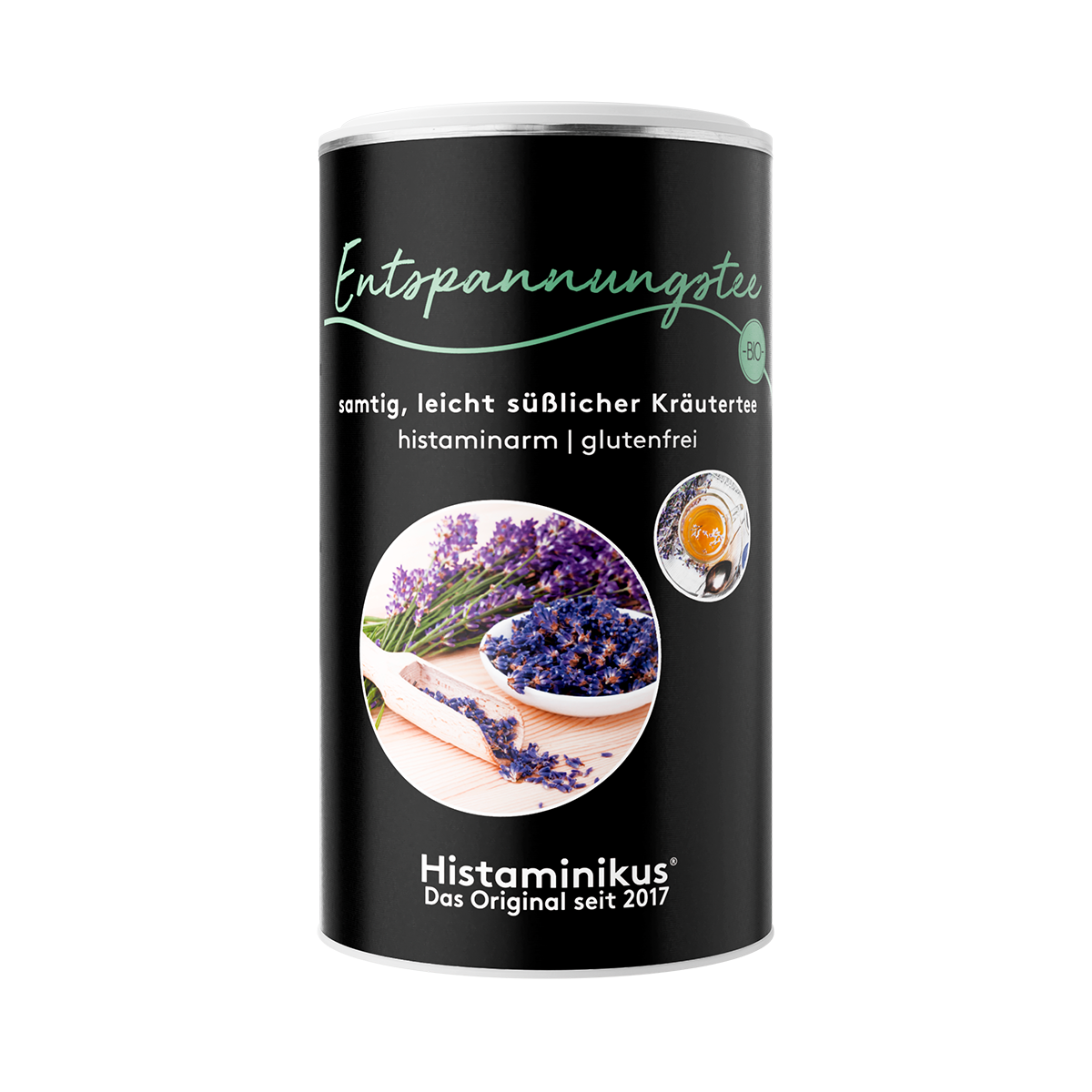
Histaminikus
Relaxation tea organic
4.76 / 5.0
(17) 17 total reviews
Share
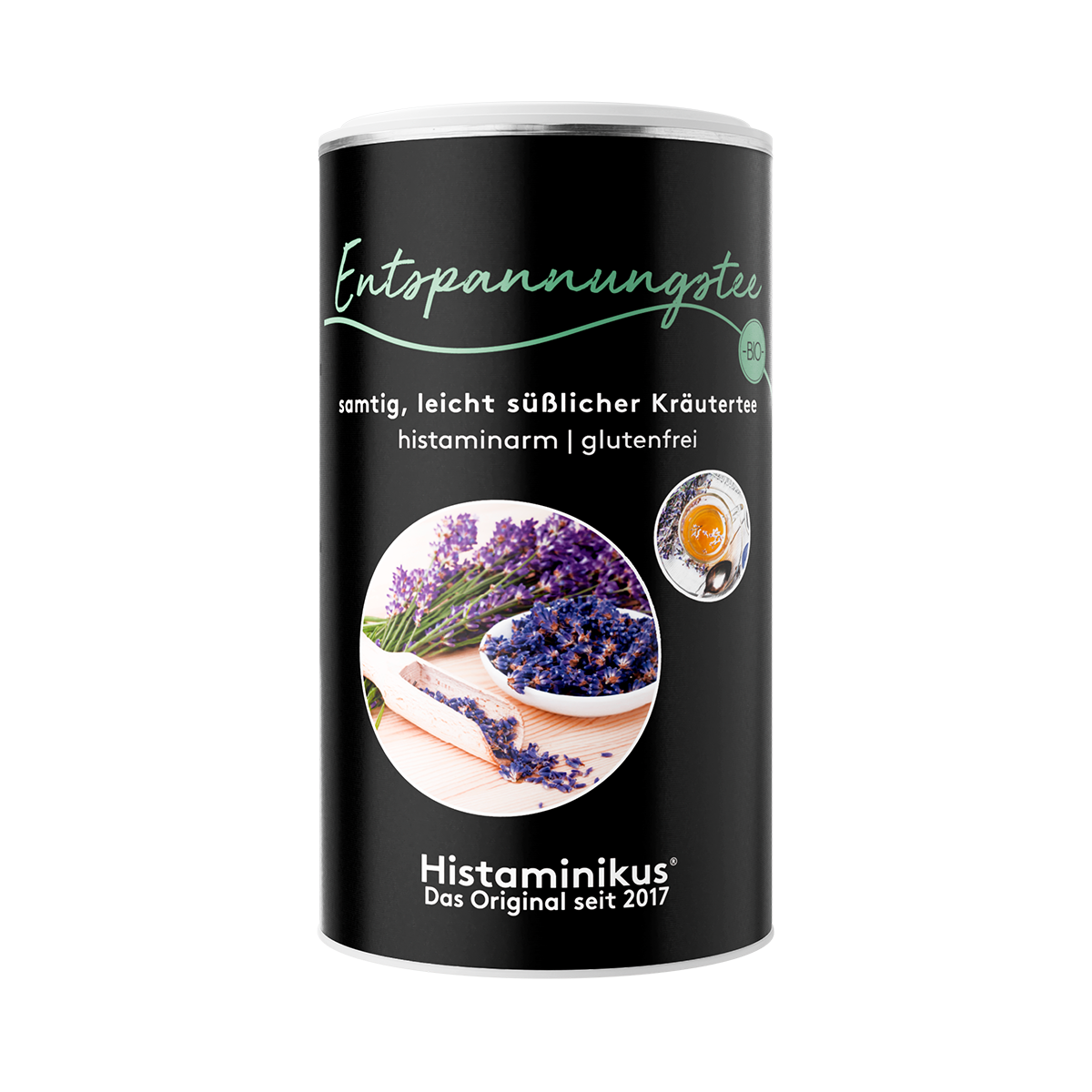
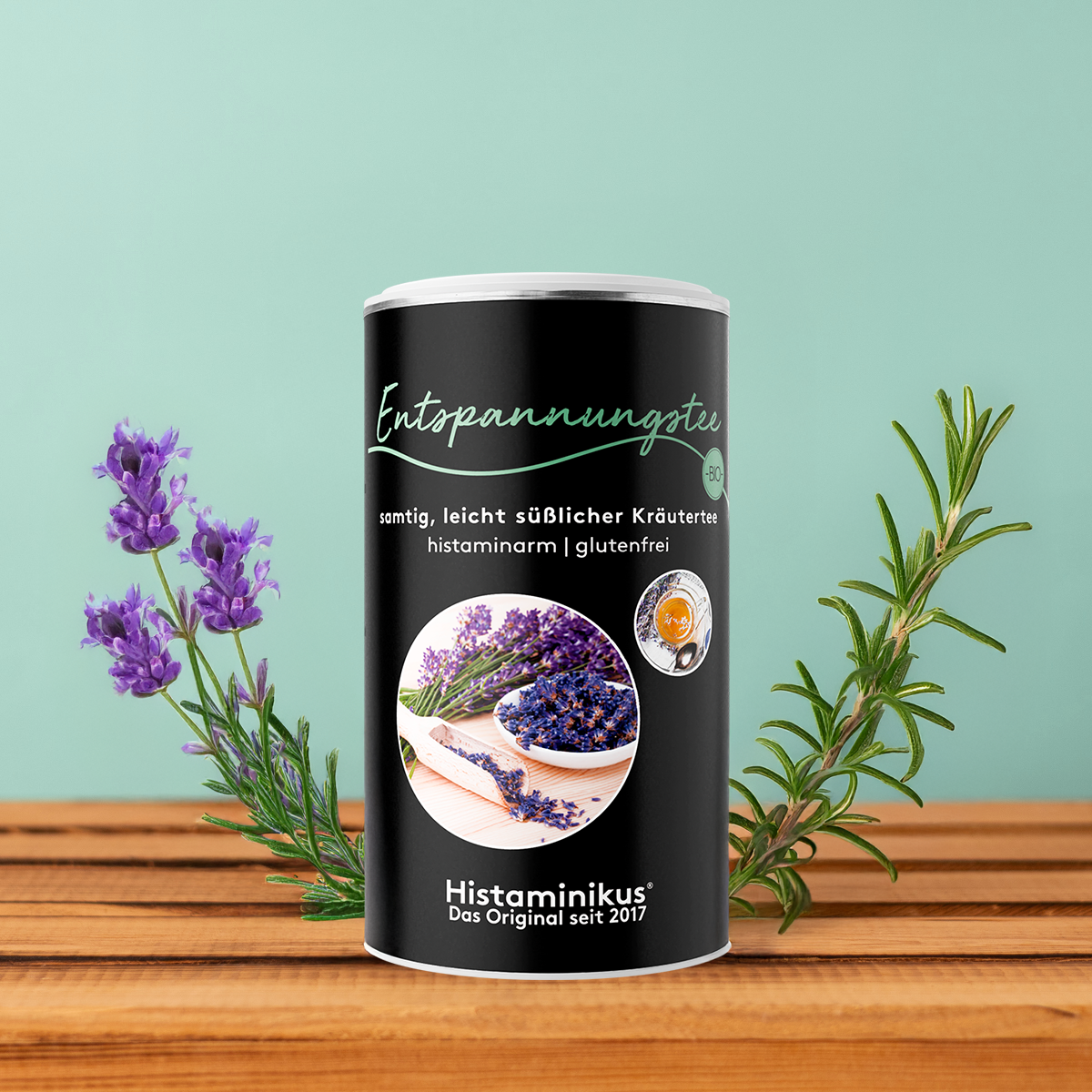
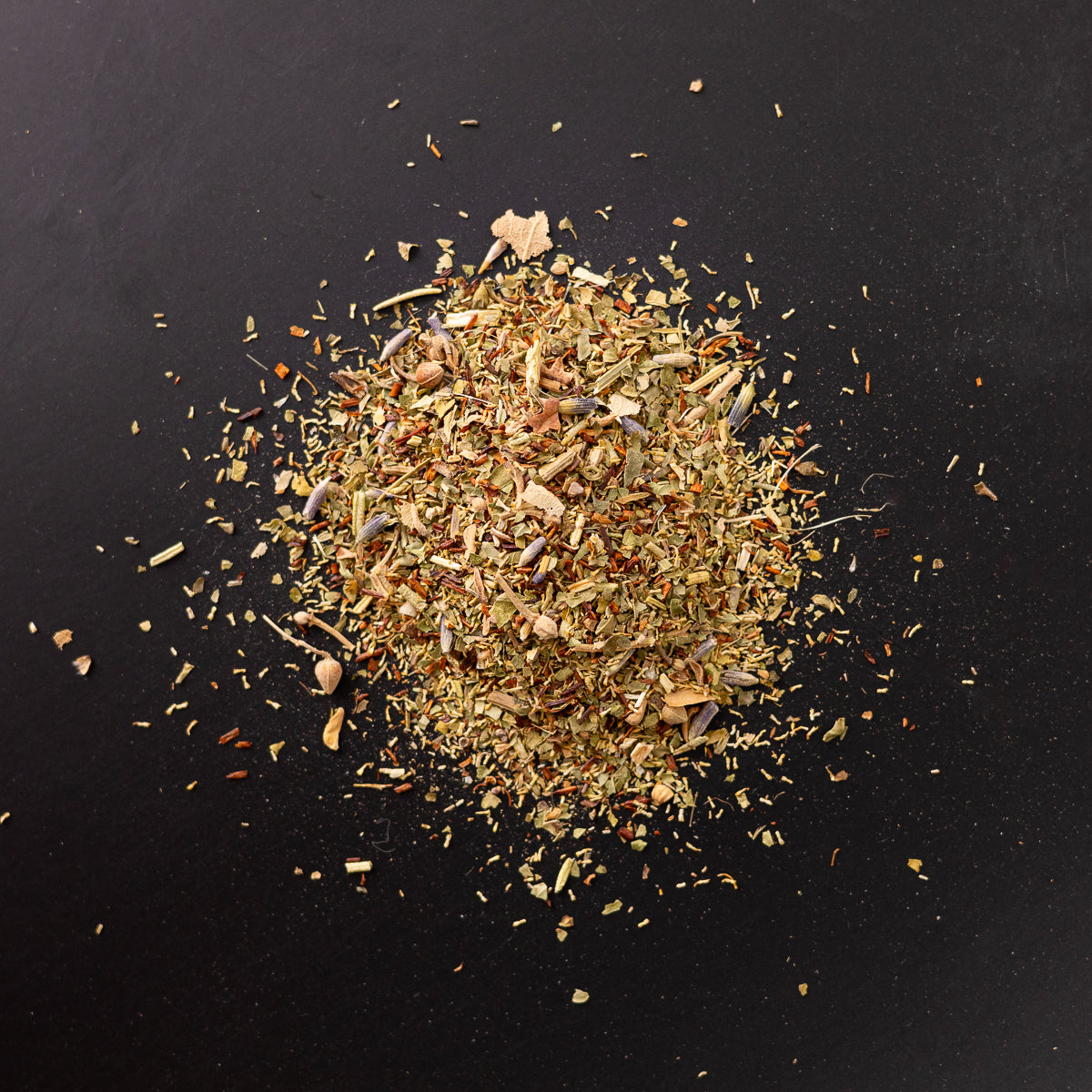

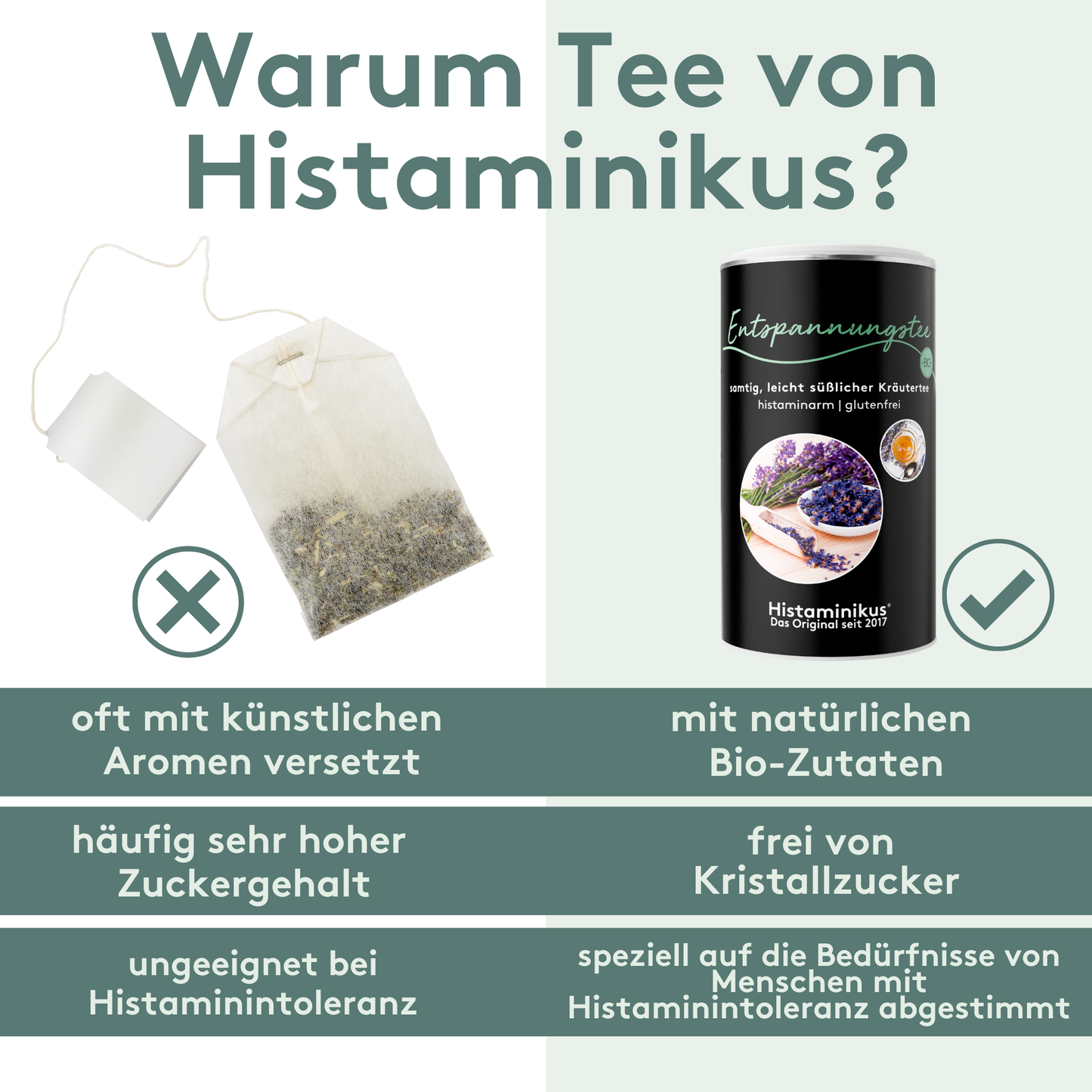
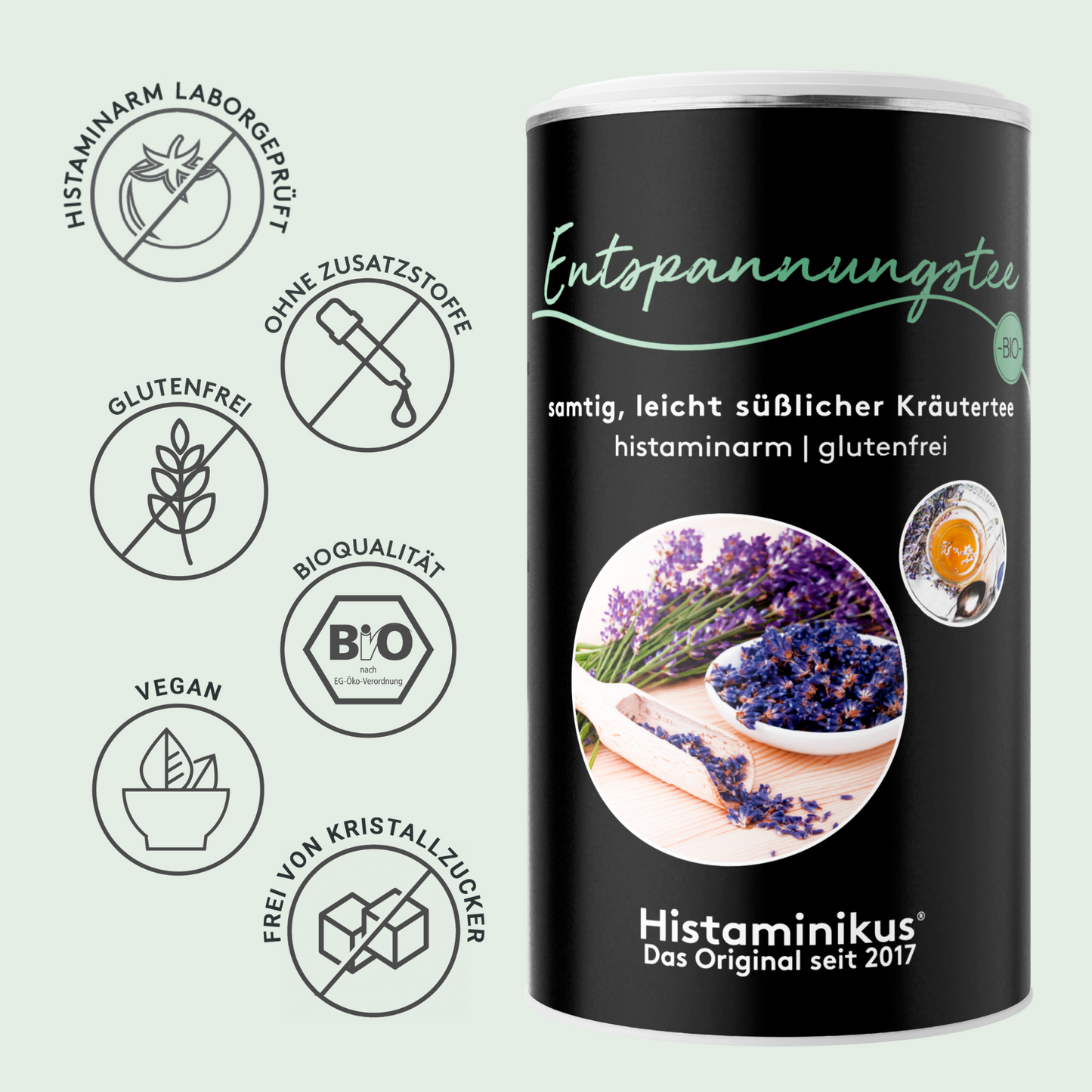


From those affected for those affected
We are Thomas and Michaela Zinser, founder of Histaminikus.
Because of the own histamine intolerance of Michaela and our son, we founded Histaminikus. The frustration does not find any suitable histamine food has spurred us to develop low -histamine food.
We would like to give you back a piece of quality of life. Feel free to look around with us.
Kind regards
Thomas and Michaela
